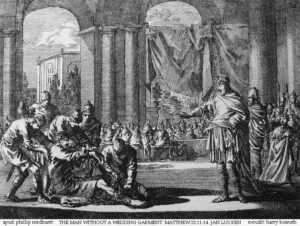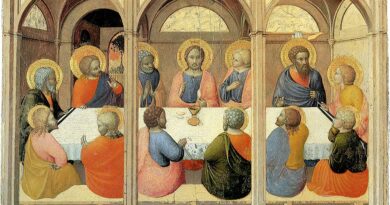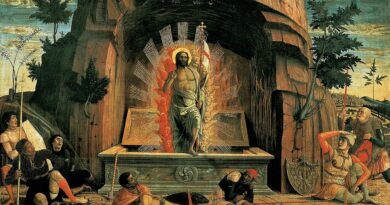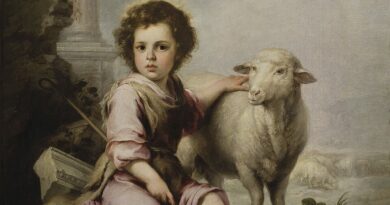Twenty-eighth Sunday of Ordinary Time/A
Massimo Palombella

In today’s Gospel (Mt 22:1-14) Jesus continues to speak to us in parables. The “wedding feast” to which the guests are expected, questions us deeply about the quality of our lives.
In fact, to participate in a ‘wedding feast’ is to encounter reality, that is, to be challenged by the meaning of life, love, fecundity, family, fatherhood and motherhood… The ‘wedding feast’ summarises what represents the point of arrival of a life, what we all deeply desire, and without which we know we cannot really live. We cannot, in fact, live without being in love, without understanding and defining our sexuality in paternity and maternity, without a profound sense that, even in difficulty, fatigue and pain, allows us to continue to wear, at any age, the ‘wedding dress’, that is, to have a purpose, a passion, and to remain on the road without stopping.
We may be tempted to stop participating in the “wedding feast” by putting forward the same justifications as the persons described in the parable. Having to take care of “our own business” is, in fact, the great deception of no longer encountering and living reality, of evading the challenge of truth, and of silently and imperceptibly condemning ourselves to being lonely people who try to fill their lives with so many surrogates.
The Lord continues to invite us to the ‘wedding feast’, continues to ask us for ‘the wedding dress’, despite our ‘unwillingness’, our fear, our discomfort, our not feeling up to it… The Lord continues, in essence, to offer us the possibility of dignity, the possibility and the strength to be the people we can and should be.
The Gradual of today’s celebration is taken from Psalm 132 (Ps 132, 1. 2) with the following text:
“Ecce quam bonum, et quam jucundum habitare fratres in unum!
Sicut unguentum in capite, quod descendit in barbam, barbam Aaron.”
(Behold how good and how pleasant it is for brethren to dwell in unity.
Like the precious ointm ent on the head, that ran down upon the beard, the beard of Aaron).
The attached music, in Gregorian Chant, is taken from the Graduale Triplex published in Solesmes in 1979. The performance is by the Schola Antiqua conducted by Juan Carlos Asensio Palacios. The musical track can be found on the CD “Octoechos Latino – El Canto Gregoriano Y Sus Sistemas Melódicos” published by Pneuma in 2002.
A blessed Sunday and heartfelt greetings.


